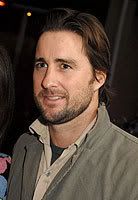Post by ocw on Jan 2, 2008 16:21:35 GMT -5
From the Dallas Morning News
By MICHAEL GRANBERRY / The Dallas Morning News
mgranberry@dallasnews.com
In 1985, photographer Laura Wilson drove David McCullough, a family friend and soon to be Pulitzer Prize-winning author, to the Lambshead Ranch in West Texas, near Albany. He was so taken with the ranch and its patriarch, Watt Matthews, that he asked why she hadn't chosen Lambshead as the subject for a book of photographs.
"And I said, 'Well, you know, it's cowboys and ranches, and it's been done before.' And he said, 'No, no person like this has been done before. This is special ... really unusual.' "So, when Ms. Wilson chose to tackle the project, she asked Mr. McCullough to write the text. But he demurred, saying she was the person best suited to write the text and shoot the photographs.
Mr. McCullough did contribute the foreword to Watt Matthews of Lambshead, (Texas A&M University Press, $39.95), a stunning compilation for which Ms. Wilson took thousands of photographs and wrote the text. The book was published in 1989, when Mr. Matthews was a spry 90. It then went through four printings.
The book was recently reissued, about a decade after Mr. Matthews' death in 1997. Ms. Wilson, a renowned photographer whose work has appeared in Vanity Fair, Texas Monthly and the New York Times Magazine, has added a new afterword, which addresses what happened after Mr. Matthews' death. Unlike many other large ranches, Lambshead has remained in the family.
"When I first met Watt," she says, "he was running the ranch for his large extended family. What I found unusual was that he had spent his entire life at Lambshead, except for the four years he spent at Princeton. He was very bright, very intelligent, very sensitive, very thoughtful."
And a great subject for a book, especially a coffee-table classic filled with terrific photographs that extol a bygone era in West Texas ranching.
The youngest of nine children, "Watt was directly connected to the frontier," says Ms. Wilson. "His mother had lived on the ranch in the 1850s, so the family history predates the Civil War. Theirs was truly a house on the edge of a frontier in the 1850s. There was nothing between that house and Santa Fe except for buffalo, antelope and wild horses. Watt's uncle had been shot by Comanches and carried an arrowhead in his back for 15 years."
Introduced to Mr. Matthews by a mutual friend, Ms. Wilson and her husband, Bob, got to know him and the ranch well before she decided to do the book. The Wilsons are the parents of Hollywood actors Andrew, Owen and Luke, each of whom reveled in going to Lambshead to hunt, fish and ride horses.
"Watt was so welcoming to us as a family," she says.
He proved to be equally generous as the subject of a book, granting her unlimited access to a large Texas ranch, which, as she says, "is an enclosed world."
In probing that direct link to the Texas frontier, she came to realize that this icon of ranching represented the real Texas.
"This wasn't J.R. Ewing and Dallas," she says. "This was not an oil-rich, profligate way of life. This was the real thing."
Over time, Mr. Matthews became the head of a clan numbering more than 70. Family members had come to regard him as the most qualified guardian of the ranch and all that went with it. On occasion, conflicts had arisen, but Mr. Matthews had been the most adept at navigating them. In return, he came to regard running the ranch as a sacred trust.
He never married. Ms. Wilson suggests it may have been because he felt the weight of responsibility so strongly. One of his sisters suffered the loss of her husband, and he helped raise her children.
"It may have also been his family thinking that no one was good enough for him," says Ms. Wilson. "He did say to me once, 'What woman would want to live out here?' There was no electricity on the ranch until 1944. It was quite remote."
She came to regard Mr. Matthews as "exemplifying the best of the American West, in that he was intelligent, educated, restrained ... and a very good man."
He was also quite expansive and generous, opening the ranch to 30 people or more for breakfast or lunch and welcoming guests.
Born in New England, Ms. Wilson has long been fascinated with rural subjects, because they remind her of her own childhood. She grew up in a town of 1,200 on the south shore of Massachusetts, near Cape Cod, where, even as the daughter of a Blue Cross Blue Shield executive, she spent her childhood riding horses.
She's the author of four books, including studies of the Amish-like Hutterites and six-man Texas football (with a foreword by Troy Aikman). She spent six years working with world-renowned photographer Richard Avedon, whom she regards as a mentor.
She has taken tens of thousands of photographs. So, what's her favorite?
Choosing just one is like choosing one child, she says, but were she to rescue one while "dashing from the house with flames all around," it would be the one, taken in Van, in East Texas, of her three boys with a pony. Andrew and Owen are sitting atop the pony, with baby Luke standing nearby.
"I like that picture a lot," she says.
The access Mr. Matthews gave her allowed her to fill a book with exquisite black-and-white photography.
"I still remember driving out to the ranch, and how the chain restaurants and all that stuff you're exposed to today – Dairy Queens and used car lots – would just fall away," she says. "You'd go farther and farther, and a sense of relief would come over you as you crossed into Shackelford County. Spend a little time there, and it's easy to see why Watt loved it so much ... and made it his life."
By MICHAEL GRANBERRY / The Dallas Morning News
mgranberry@dallasnews.com
In 1985, photographer Laura Wilson drove David McCullough, a family friend and soon to be Pulitzer Prize-winning author, to the Lambshead Ranch in West Texas, near Albany. He was so taken with the ranch and its patriarch, Watt Matthews, that he asked why she hadn't chosen Lambshead as the subject for a book of photographs.
"And I said, 'Well, you know, it's cowboys and ranches, and it's been done before.' And he said, 'No, no person like this has been done before. This is special ... really unusual.' "So, when Ms. Wilson chose to tackle the project, she asked Mr. McCullough to write the text. But he demurred, saying she was the person best suited to write the text and shoot the photographs.
Mr. McCullough did contribute the foreword to Watt Matthews of Lambshead, (Texas A&M University Press, $39.95), a stunning compilation for which Ms. Wilson took thousands of photographs and wrote the text. The book was published in 1989, when Mr. Matthews was a spry 90. It then went through four printings.
The book was recently reissued, about a decade after Mr. Matthews' death in 1997. Ms. Wilson, a renowned photographer whose work has appeared in Vanity Fair, Texas Monthly and the New York Times Magazine, has added a new afterword, which addresses what happened after Mr. Matthews' death. Unlike many other large ranches, Lambshead has remained in the family.
"When I first met Watt," she says, "he was running the ranch for his large extended family. What I found unusual was that he had spent his entire life at Lambshead, except for the four years he spent at Princeton. He was very bright, very intelligent, very sensitive, very thoughtful."
And a great subject for a book, especially a coffee-table classic filled with terrific photographs that extol a bygone era in West Texas ranching.
The youngest of nine children, "Watt was directly connected to the frontier," says Ms. Wilson. "His mother had lived on the ranch in the 1850s, so the family history predates the Civil War. Theirs was truly a house on the edge of a frontier in the 1850s. There was nothing between that house and Santa Fe except for buffalo, antelope and wild horses. Watt's uncle had been shot by Comanches and carried an arrowhead in his back for 15 years."
Introduced to Mr. Matthews by a mutual friend, Ms. Wilson and her husband, Bob, got to know him and the ranch well before she decided to do the book. The Wilsons are the parents of Hollywood actors Andrew, Owen and Luke, each of whom reveled in going to Lambshead to hunt, fish and ride horses.
"Watt was so welcoming to us as a family," she says.
He proved to be equally generous as the subject of a book, granting her unlimited access to a large Texas ranch, which, as she says, "is an enclosed world."
In probing that direct link to the Texas frontier, she came to realize that this icon of ranching represented the real Texas.
"This wasn't J.R. Ewing and Dallas," she says. "This was not an oil-rich, profligate way of life. This was the real thing."
Over time, Mr. Matthews became the head of a clan numbering more than 70. Family members had come to regard him as the most qualified guardian of the ranch and all that went with it. On occasion, conflicts had arisen, but Mr. Matthews had been the most adept at navigating them. In return, he came to regard running the ranch as a sacred trust.
He never married. Ms. Wilson suggests it may have been because he felt the weight of responsibility so strongly. One of his sisters suffered the loss of her husband, and he helped raise her children.
"It may have also been his family thinking that no one was good enough for him," says Ms. Wilson. "He did say to me once, 'What woman would want to live out here?' There was no electricity on the ranch until 1944. It was quite remote."
She came to regard Mr. Matthews as "exemplifying the best of the American West, in that he was intelligent, educated, restrained ... and a very good man."
He was also quite expansive and generous, opening the ranch to 30 people or more for breakfast or lunch and welcoming guests.
Born in New England, Ms. Wilson has long been fascinated with rural subjects, because they remind her of her own childhood. She grew up in a town of 1,200 on the south shore of Massachusetts, near Cape Cod, where, even as the daughter of a Blue Cross Blue Shield executive, she spent her childhood riding horses.
She's the author of four books, including studies of the Amish-like Hutterites and six-man Texas football (with a foreword by Troy Aikman). She spent six years working with world-renowned photographer Richard Avedon, whom she regards as a mentor.
She has taken tens of thousands of photographs. So, what's her favorite?
Choosing just one is like choosing one child, she says, but were she to rescue one while "dashing from the house with flames all around," it would be the one, taken in Van, in East Texas, of her three boys with a pony. Andrew and Owen are sitting atop the pony, with baby Luke standing nearby.
"I like that picture a lot," she says.
The access Mr. Matthews gave her allowed her to fill a book with exquisite black-and-white photography.
"I still remember driving out to the ranch, and how the chain restaurants and all that stuff you're exposed to today – Dairy Queens and used car lots – would just fall away," she says. "You'd go farther and farther, and a sense of relief would come over you as you crossed into Shackelford County. Spend a little time there, and it's easy to see why Watt loved it so much ... and made it his life."













